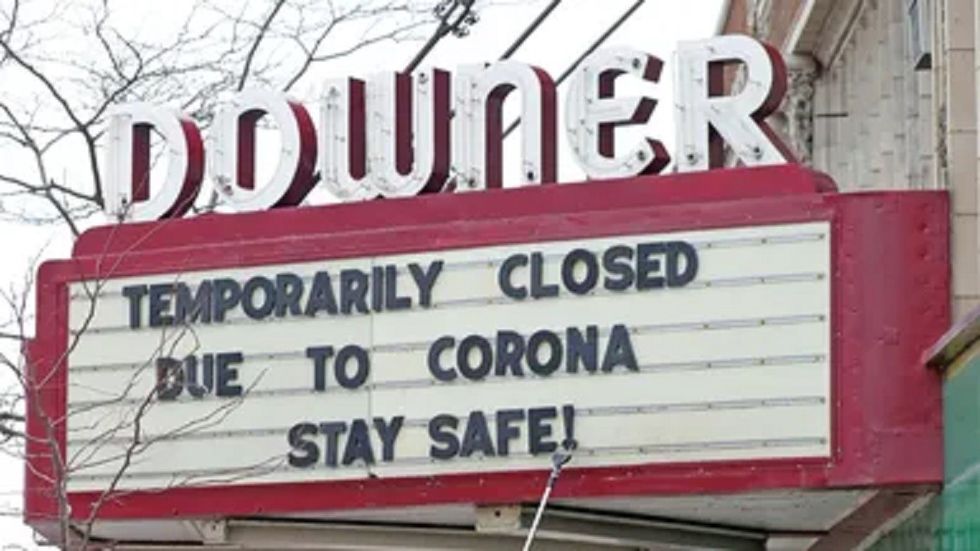The Sniffle That Became A Viral Snafu
The Government of Canada is expected to pass legislation today that will provide relief to displaced wage earners and mortgage holders, provide liquidity relief to businesses, and offer some sort of income support for a range of workers not normally covered by employment insurance.

By David Farrell
It started in a meat market in Wuhan, China in December. A month later state media reported an unnamed 61-year-old customer had become the first to die from the respiratory illness we now call novel coronavirus.
Canada’s federal and provincial governments, like many others worldwide, had been slow to realize the damage the coronavirus pandemic posed to the population and the economy.
That all changed this week and today the Government of Canada is expected to pass legislation that will provide relief to displaced wage earners, mortgage holders, provide liquidity relief to businesses, and offer some sort of income support for a range of workers not normally covered by employment insurance.
Below, Detroit rapper Gmac Cash has released Coronavirus, a song about self-isolating in these unprecedented times.
Some Facts:
Globally, more than 7,500 people are dead from coronavirus.
More than 190,000 are reported as infected.
80,648 are reported as having recovered from the infection.
In Canada, 5 are dead and 468 are infected.
By comparison, last year in Canada there were more than 600 murders.
About, 3000 last year were victims in vehicular deaths.
80,000 died from cancer in this country, according to the latest StatsCan figure.
Globally, there were 577 confirmed Ebola cases reported, resulting in more than 1803 confirmed deaths in 2019
In Latin America, the mosquito-related Dengue fever killed 1300 people last year and the infection rate tipped 3 million in 2019.
Post 9/11, 2001, military attacks have cost 801,000 lives and $6.4 trillion according to a pair of reports published by the Costs of War Project.
According to the UN, there are 1.5 million refugees in Jordan, Lebanon, Syria, the West Bank and the Gaza Strip. Globally, 37,000 people are forced to flee their homes every day due to conflict or persecution. There are 70.8 million people around the world that have been forced from home by conflict and persecution at the end of the last reported window, in 2018. Among them are nearly 30 million refugees, over half of whom are under the age of 18.
The world is a dangerous place, and snuffing out a pandemic will require more than self-quarantining when millions are at risk due to starvation, drought, and war.
Below, the Corona Virus Song. Artist unattributed.
But what about ‘us’?
Short term, Canada’s entertainment industries are standing up for the rights of their constituents, aggregating data to present to federal, provincial and municipal governments. Be prepared to participate.
- Canadian Live Music Assocation (CLMA) has launched a survey to gauge the severity of its impacts on the Canadian music industry as a whole. The answers are to remain confidential and shared in aggregate only with key decision-makers in government. The purpose is to give government a quick snapshot of the impacts and to encourage them to provide immediate and long-term relief to the industry. You can participate by linking here.
- CIMA has similarly launched a survey that is open to a wide net of music-related firms and individuals that include musicians and tech staff. The terms are the same as those set out by CLMA. To participate, link here.
- The Canadian Federation of Musicians (CFM) has sent an open letter to federal and provincial ministries overseeing culture, social security and employment. The CFM is requesting that governments adopt emergency measures to provide an economic aid package, including a waiver of the one-week waiting period for EI benefits (in the case where the musicians are entitled), to expanding the benefit to include freelance workers who provide their services as self-employed contractors, to ensuring that compensation is made available for musicians who have had gigs or tours cancelled for both lost revenue and other expenses paid to USCIS as petition fees for P2 visas for US entry.
- Roots Music Canada is testing technology to allow artists to stream performances on its website and sell tickets and make some money to offset their losses from coronavirus cancellations. The easiest platform to stream through is YouTube’s mobile streaming setup because it allows us to take a private stream straight from an artist’s camera-phone and put it on our site. RMC’s website also includes five simple actions fans can support artists during the pandemic. While you are at it, make a pledge supporting RMC.
- US-based music finance firm Sound Royalties has announced a $20M no-fee royalty advance fund for music creators affected by Coronavirus that runs through April 30. Sound Royalties says that songwriters, performing artists, producers and others with royalty income can apply for zero-interest cash advances on a one-year repayment schedule with “no fees or costs of any kind”.
- CBC Music is promoting the cause with ‘5 ways to support Canadian musicians’ during the pandemic. Included is the suggestion to donate to the Unison Benevolent Fund, an industry trust set up to help those in our music community who are most in need.
- Unison, meantime, has responded to the outbreak with a mission statement that can be read online.
- Another possible avenue for musicians, songwriters and composers to access interest-free loans is to petition SOCAN and ACTRA. Both orgs have tens of millions of dollars sitting in reserves that could be accessed per request or even dispersed based on need.
- Virtual concerts (as per Roots Music Canada) are on the front-burner for a growing number of acts who are housebound and faced with the harsh reality of no work and no income. Among the artists launching online concerts are Maritime fiddler Ashley MacIsaac who plans to livestream a ceilidh on April 1, surrounded by a small circle of friends. He says he already has country singer George Canyon and comedian Bette MacDonald on tap to perform during the digital festival, which he aims to livestream on his website and social channels. "I just lost all my work between now and July," he told As It Happens host Carol Off. "All of a sudden, [you're] put in a position where you don't have a platform to perform for people."
He says he's aiming to keep the price cheap — between $4 and $6 to watch or download the performances. But if he manages to wrangle up a sponsor, he says he'll make it free for everyone.
– Beyond this, you may have to take in a boarder, find work in another gig economy (food deliveries are going to soar), create customized songs for friends and neighbours, or network by donating time and creativity to any number of organizations dealing with people in distress. These are difficult times and the resourceful will win out. Talk is cheap, the news is awful and actions speak louder than words.
Finally, FYI’s small but dedicated news team promises to provide news updates on what’s going on and where funding can be found as this juggernaut unfolds.

















